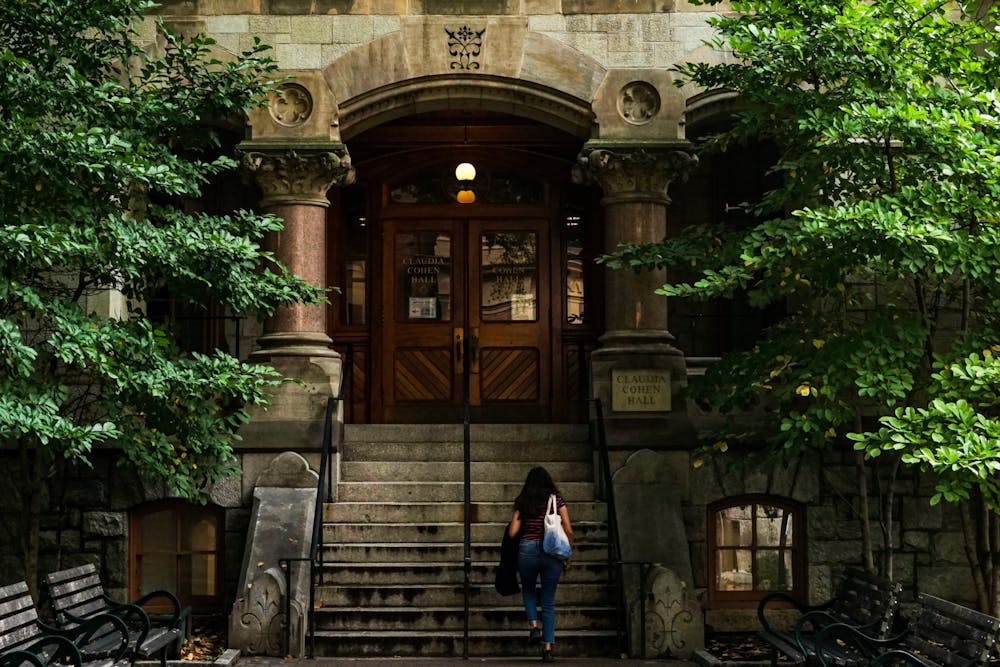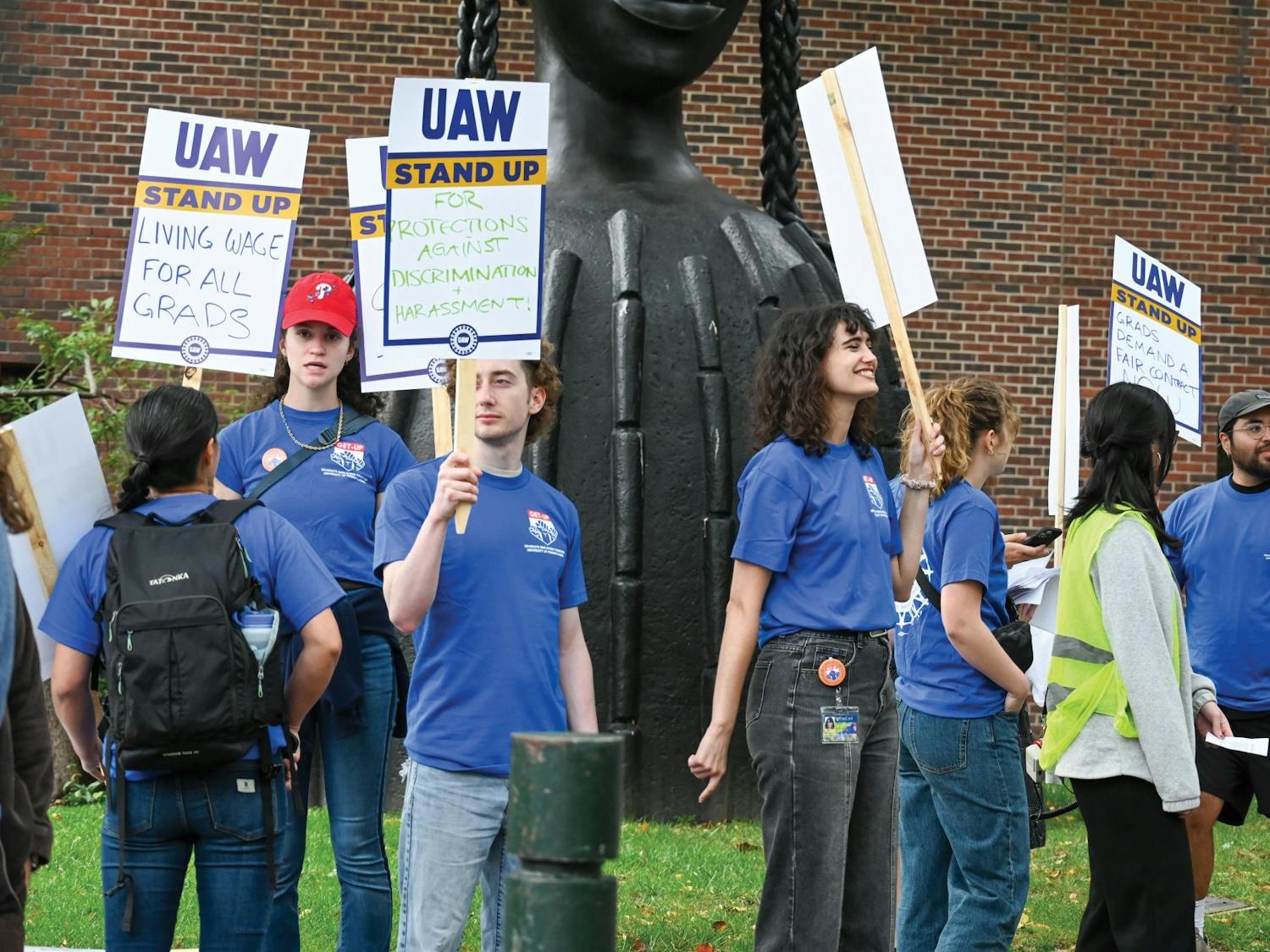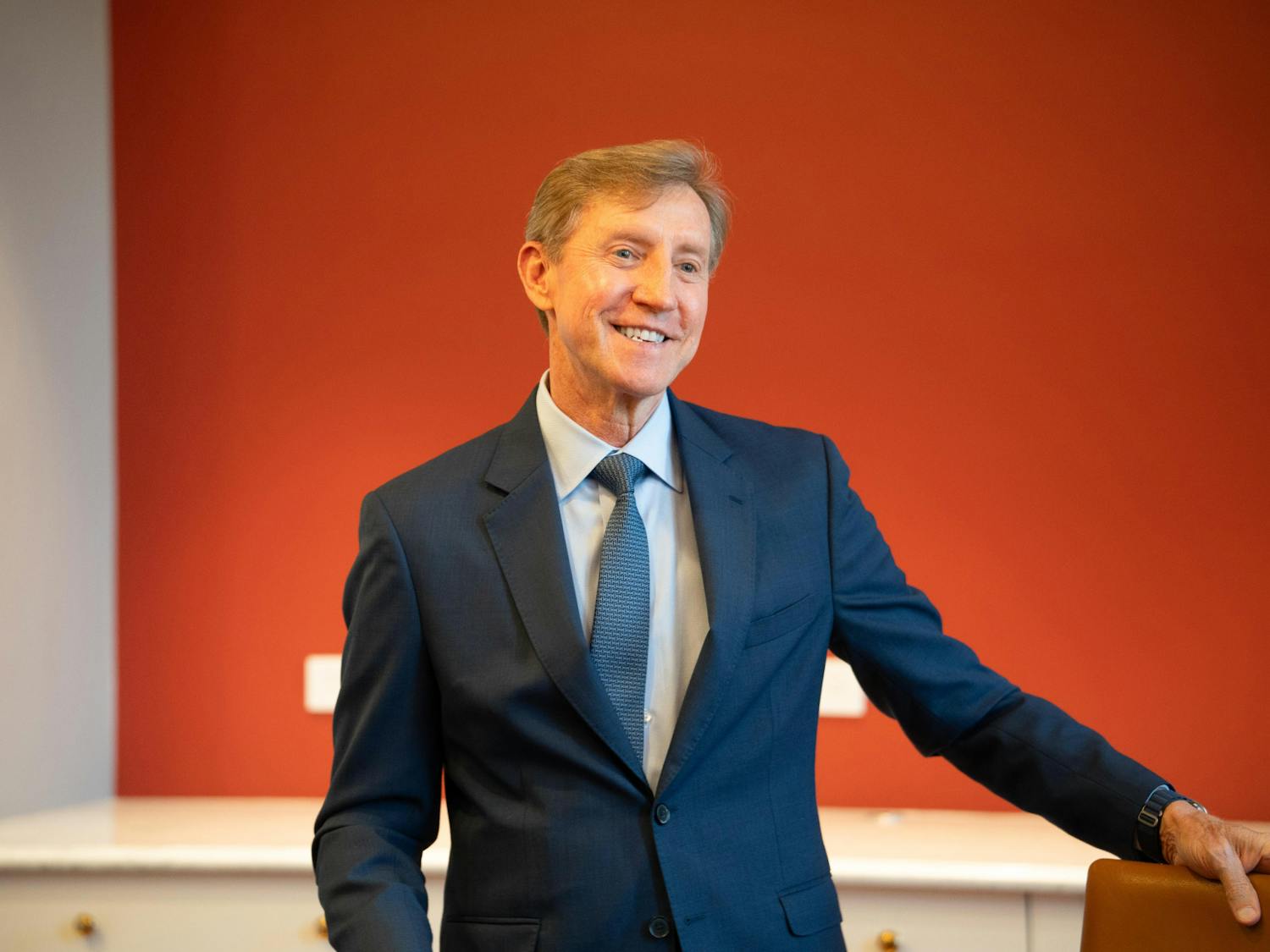For the first time in 18 years, faculty and administrators in Penn's College of Arts and Sciences are beginning to consider extensive changes to the College curriculum.
Standing faculty last revised the curriculum in 2005, creating the current framework of sectors and foundational approaches that remains in place today.
"The purpose of the major is clear: it provides an intellectual 'home base,' and a perspective from which to understand, criticize, engage with and improve the world," the 2005 announcement from former College Dean Dennis DeTurck reads. "But in order to do so constructively, our students must also appreciate the importance and relevance of fields in which they have not developed particular expertise."
The College is now in the process of reviewing the curriculum on a large scale for the first time since this announcement — though the timeline for implementing any changes remains unclear, and the school continues to consistently review its academic framework. Potential changes could impact the sector and foundation requirements, the number of credits in each major, and the College’s mission statement.
The Daily Pennsylvanian spoke with administrators, professors, and students about what these changes may look like and how they reflect the value of a liberal arts education at Penn.
The decline of the liberal arts
Liberal arts programs have seen a decrease in student enrollment and funding at large public schools and small liberal arts colleges alike. This phenomenon is happening at Penn.
Since 2003, the University has seen a decline in the number of students graduating with degrees in the humanities and the social sciences as well as a simultaneous rise in the number of students graduating with degrees in natural sciences.
RELATED:
College of Arts and Sciences Dean Paul Sniegowski to leave Penn for Earlham College presidency
Penn Medicine appoints first-ever vice dean for artificial intelligence and computing
“One thing that we are all super aware of is that the humanities majors are just tanking,” Associate Dean and Director of Academic Affairs for the College Molly McGlone said. “If we go back 25 years, history and English were the biggest majors in the College, and not anymore.”
Dean of the College of Arts and Sciences Paul Sniegowski also said he has noticed a decline in liberal arts appreciation.
“What has happened in the last two, three decades is that what used to be a kind of assumption that the liberal arts are extraordinarily valuable has kind of been more and more questioned,” he said.
The value of a liberal arts degree
Throughout the past academic year — as Penn was swept up in political scrutiny and leadership crisis — donors to the University questioned the value and quality of the College, where all undergraduate liberal arts majors are housed.
These critics include Wharton Board of Trustees Chair Marc Rowan. In a Feb. 27 interview, Rowan said that faculty members in the School of Engineering and Applied Science, the Perelman School of Medicine, and the Wharton School are committed to “academic excellence and research," while faculty in the College are “not so much.”
A spokesperson for Rowan did not respond to a request for comment.
Sniegowski described “external pressure” relevant to discussions about curriculum changes, but clarified that this influence is not the primary motivation for potential changes.
“Our motivation is not defensive,” Sneigoswki said. “Our motivation is creative and supportive of our students and our mission.”
Peter Struck, a professor of classical studies and chair of the College Curriculum Committee, pointed to the need for further emphasis on the value of the liberal arts.
“We've got strong messages here about the importance of pre-professional education and that's great," Struck said. "I also think we need strong messages about the importance of a liberal arts education.”
Potential curriculum changes
Conversations about curriculum changes are in their early stages, but administrators and faculty are examining several specific areas. The review is being undertaken by committees such as the Committee on Undergraduate Education and the Curriculum Committee.
McGlone said that while there is still consensus on wanting to expose students to a broad range of disciplines — such as the physical world or arts and letters — there is also a “general sense of agreement that it's not clear to students what those things mean.”
She added that committees within the College, such as the Committee on Undergraduate Education, hope to “take stock” of the existing system and “reinvigorate the conversation” surrounding what each of the requirements actually means.
As part of the general education requirement, students in the College must take classes across seven ‘Sectors of Knowledge’ and six ‘Foundational Approaches’ in addition to completing their major coursework.
But the general education requirements are “overcomplicated” and “really confusing," College junior Eric Tao told the DP.
College senior and Co-Chair of the Dean’s Advisory Board Rushil Vellala added that his experience with general education courses has been “mixed.”
“On one hand, I enjoy the degree of exploration I can undertake,” Vellala said, “However, there are times where some of the sectors are not conducive for my own learning … and I feel like I am taking courses just for the sake of it.”
Josephine Park, a professor of English and chair of CUE, wrote to the DP that the committee has held conversations about specific elements of the general education curriculum, which led them to “many more questions about the broader structure.”
Struck added that there is an “interest among faculty” in rethinking the requirements.
The Curriculum Committee and CUE are both considering the value of first-year seminars — small classes limited to first-year students that also fulfill general education requirements. Sniegowski emphasized that he would like to see more students enroll in them.
Park said that while most discussions have focused on “brainstorming,” there have been “focused discussions about the first-year seminar as a way of establishing a home base for entering students.”
Tao said that while he “really liked” his first-year seminar, he does not think the College should require them, explaining "it should be something that's just there for people that want it.”
Another conversation in these committees has surrounded the disparity in the number of credits required for each major in the College. Next year, McGlone is hoping to create a subcommittee that will examine this topic, with a goal to “simplify” the major and degree structure.
The number of required credits for majors within the College varies significantly. According to the College website, majors can require between 12 to 20 courses. This variation also impacts the number of courses that are required for a student to graduate, with 32 to 36 credits required depending on the number of in-major courses required.
“I don’t think that there has been a whole scale look in the majors in the way that we’re talking about doing it now, so it’s a little daunting, but I think necessary at this stage,” she added.
How course units and sector fulfillments vary by major and concentration
Administrators are also in the process of examining the written mission statement of the College, which has not been updated in over a decade and is currently over six paragraphs long.
Director of Administration and Strategic Planning for the College Mike Elias told the DP that he and McGlone began rewriting the mission statement in late March to “think about how we not only refresh the language, but actually make it relevant to the 21st century.”
Sniegowski hopes that the revised mission statement can be both “strengthened” and “shorter” while also make “an abundantly supportive case for the value of the liberal arts, and what the liberal arts are.”
The perspectives of faculty and students are at the center of these discussions around curriculum changes.
“The faculty own the curriculum,” McGlone said. “We have faculty that decide what we teach, how we teach it, and the policies that go around it.”
Students are also involved in the work of the committees and have “an equal voice in the discussions,” according to Sniegowski.
“An amazing group of faculty give a lot of their time to talking amongst themselves and with student representatives about how we educate students in the liberal arts and how they might do that better,” Sniegowski added.
While Sniegowski announced he is leaving Penn on Aug. 1 to become president of Earlham College, the College remains "fully committed to the ongoing review of the General Education requirement,” the College Office wrote in a statement to the DP.








